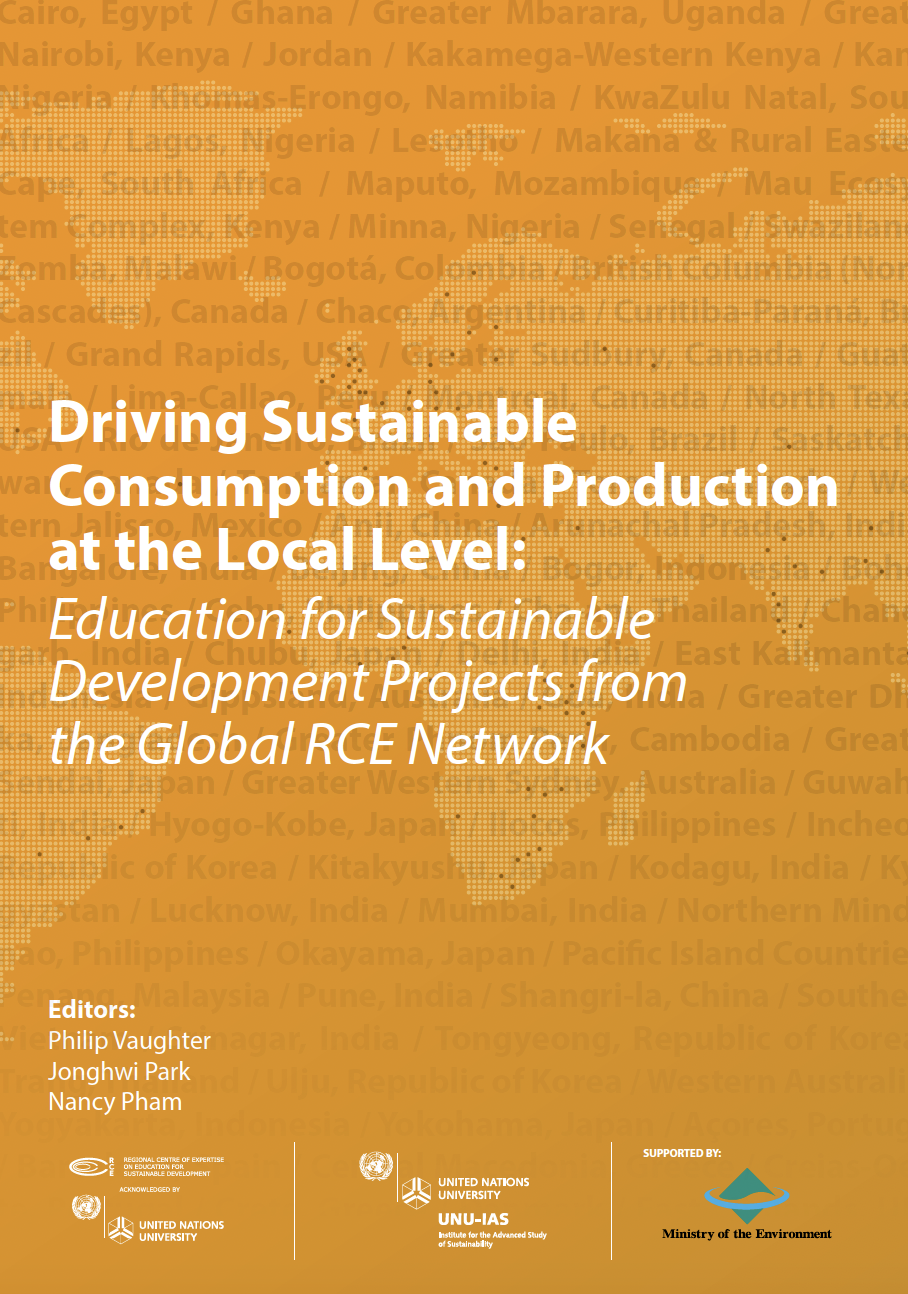RCEs Drive Sustainable Consumption and Production through Community-Based Projects in New Publication from UNU-IAS
 Launching today is a new publication from the United Nations University Institute for the Advanced Study of Sustainability (UNU-IAS), featuring innovative education projects on the topic of sustainable consumption and production (SCP), developed by Regional Centres of Expertise on Education for Sustainable Development (RCEs).
Launching today is a new publication from the United Nations University Institute for the Advanced Study of Sustainability (UNU-IAS), featuring innovative education projects on the topic of sustainable consumption and production (SCP), developed by Regional Centres of Expertise on Education for Sustainable Development (RCEs).
'Driving Sustainable Consumption and Production at the Local Level: Education for Sustainable Development Projects from the Global RCE Network' features 12 projects from RCEs around the world, that demonstrate the impact of multi-stakeholder community-based education on SCP.
The projects, all focused on SDG 12 (responsible consumption and production) cover a range of critical factors of SCP: resource efficiency; waste management and minimisation; and consumer behaviour. Since achieving SCP requires a systems-level approach with multiple groups of stakeholders, RCEs (due to their multi-stakeholder network model), are well-equipped to develop initiatives to empower stakeholders at the local level, using the entry point of education.
RCEs worked to develop innovative ways to engage a range of audiences through education – from students in formal education systems, to workers in a range of sectors, to the wider community, to bring about action and shift mindsets away from wasteful consumption and inefficient production methods. Through their initiatives, RCEs sought to raise awareness, provide knowledge and skills, and change consumer behaviours towards more sustainable lifestyles.
Each project details actions that were taken by the RCE, and invites readers to apply the best practices of multi-stakeholder engagement and action-oriented learning in their regions to promote sustainable consumption and production systems. The resulting community-based projects inspired learners to adopt more sustainable practices, including the reduction of waste, conservation of energy, and a more efficient utilisation of resources to meet the needs of both current and future generations.
View or download the publication here.
To learn more about the Global RCE Network, please visit the RCE Portal: https://www.rcenetwork.org/portal/


